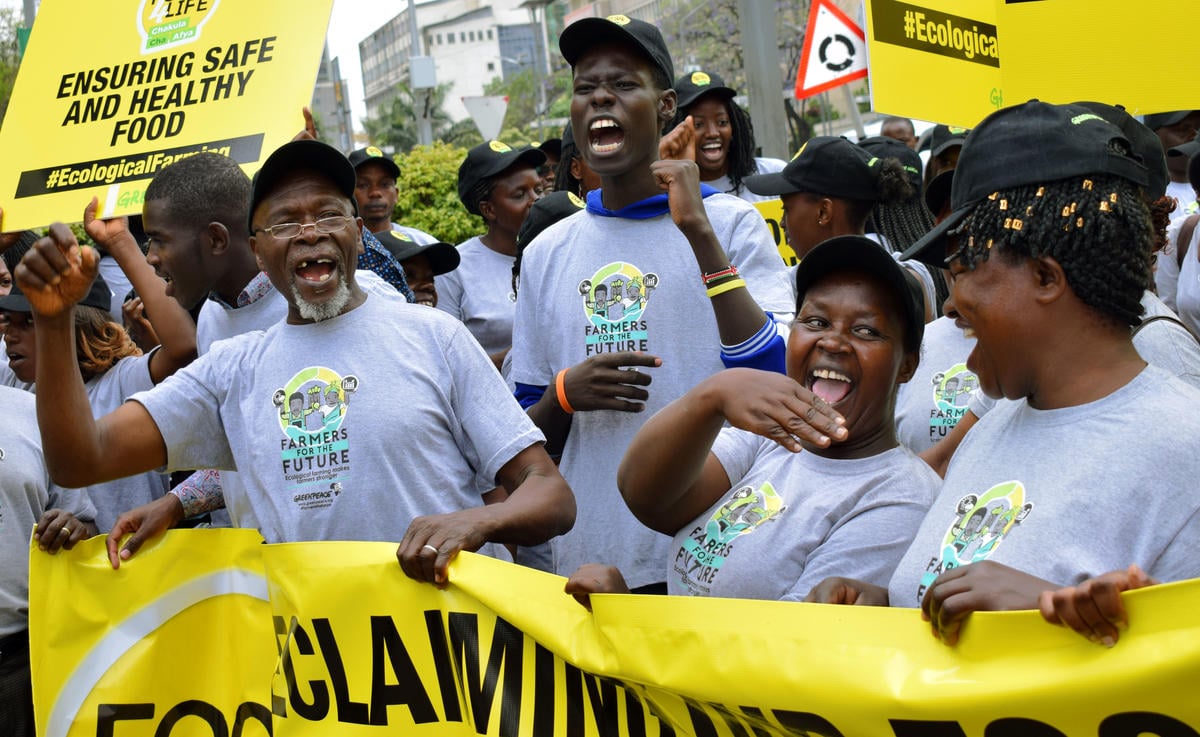Extreme situations call for courageous measures.
Argentina recently approved seismic blasting, the first stage of offshore exploitation, off the coast of the province of Buenos Aires.
Essentially, the Argentine sea was sold to oil companies. These dirty projects do not benefit anyone other than the corporations involved and only bring destruction to biodiversity and the way of life of coastal communities who live in a sustainable relationship with the sea.
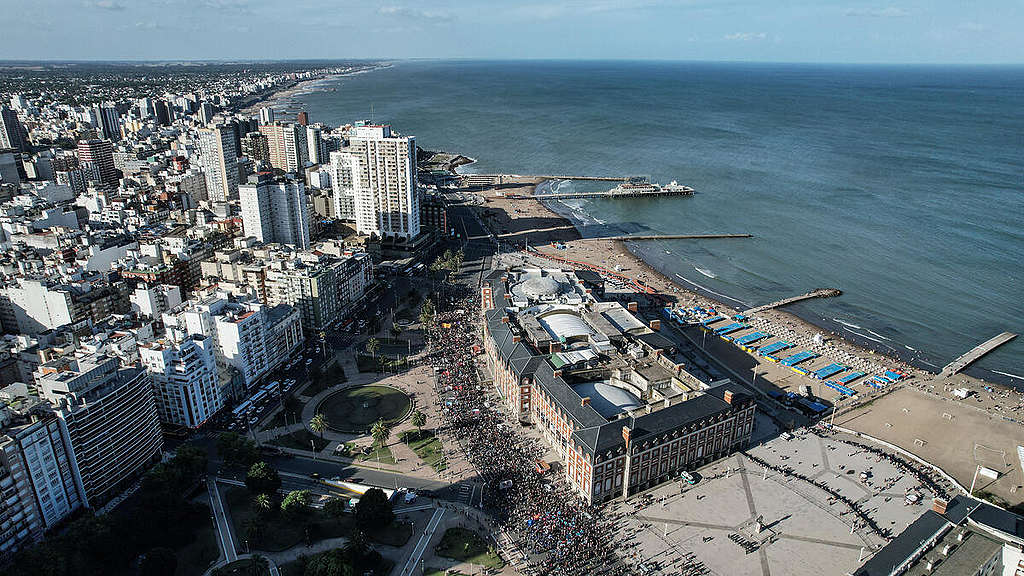
That’s why, for the first time, together with supporters from all over Argentina, scientific groups and environmental organizations, Greenpeace Argentina filed a legal complaint and an injunction against the Argentinian State, the Secretary of Energy and the National Environmental Ministry to prevent our Argentine Sea fall into the clutches of the oil industry and aggravate the climate crisis that we are facing. Thousands of people have already marched in protest against the exploitation in Buenos Aires and around the country.
We are going to write a new history together for present and future generations.
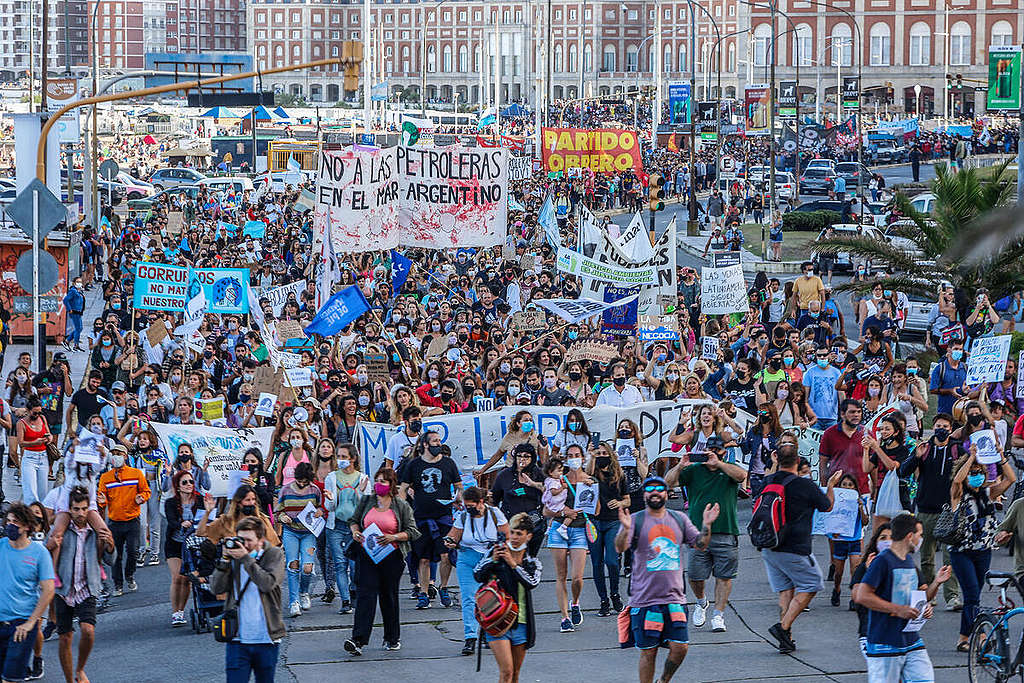
This lawsuit is going to set a precedent in Argentine justice. Children, Indigenous Peoples, investors in energy companies and anyone who feels that their human rights are violated by climate issues, or are being affected by extreme weather events can sue in a climate litigation. If we add our voices, they will have to listen to us.
So, who filed this lawsuit?
Greenpeace Argentina joined several local organisations including Surfrider Argentina, Fundación Patagonia Natural, Kula Earth, Asociación de Surf Argentina, Organización Mar, Surf Necochea Quequén Association, The General Alvarado Surf Association (Miramar), Ecos de Mar, Asociación Argentina de Abogados/as Ambientalistas in filing a class action lawsuit.
Class action lawsuits are designed to advance important public policy goals. In addition, when the defendant already has a pattern of misconduct, a class action can be more effective for a group of plaintiffs without incurring the costs of separate lawsuits and risking inconsistent decisions by different courts.
What are the demands?
Firstly, the declaration of unconstitutionality and nullity of Resolution 436/2021, which approved the seismic blasting project, for its impact on the sea, biodiversity and climate.
Additionally, there is also a demand for the unconstitutionality and nullity of Resolution 276 of the Ministry of Energy, which approved exploration permits that were granted to ExxonMobil, Shell, Total and Equinor, amongst several other oil companies.
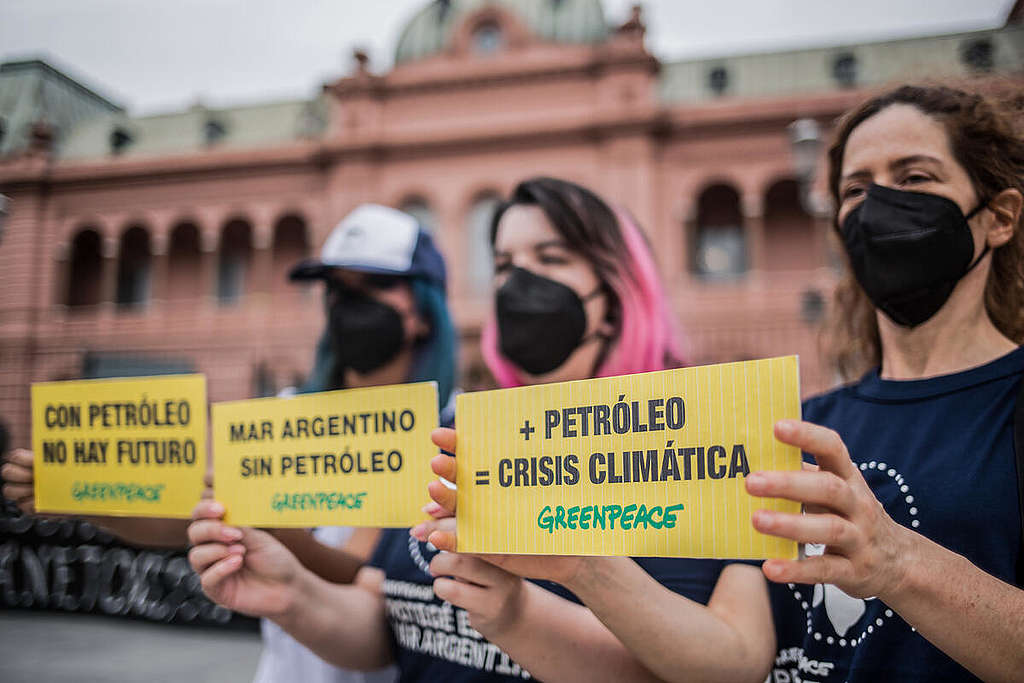
Why is the claim against the Argentine State?
Because the State has the obligation to guarantee a stable climate for citizens and to care for biodiversity. The Argentine National Constitution (Article 41) declares the right of citizens to a healthy environment, and that productive activities should not compromise this right for future generations. These oil corporate projects go against these rights and it is the responsibility of the Argentine State to protect it. For enabling the oil industry’s activity and advancement, they must be held responsible.
What result is expected with this lawsuit?
We expect the right to a stable climate to be recognized as a human right; to stop the exploitation of vulnerable and relevant ecosystems, public policies that are oriented towards investment in renewable energies and that biodiversity is prioritized over dirty energy offshore exploration.
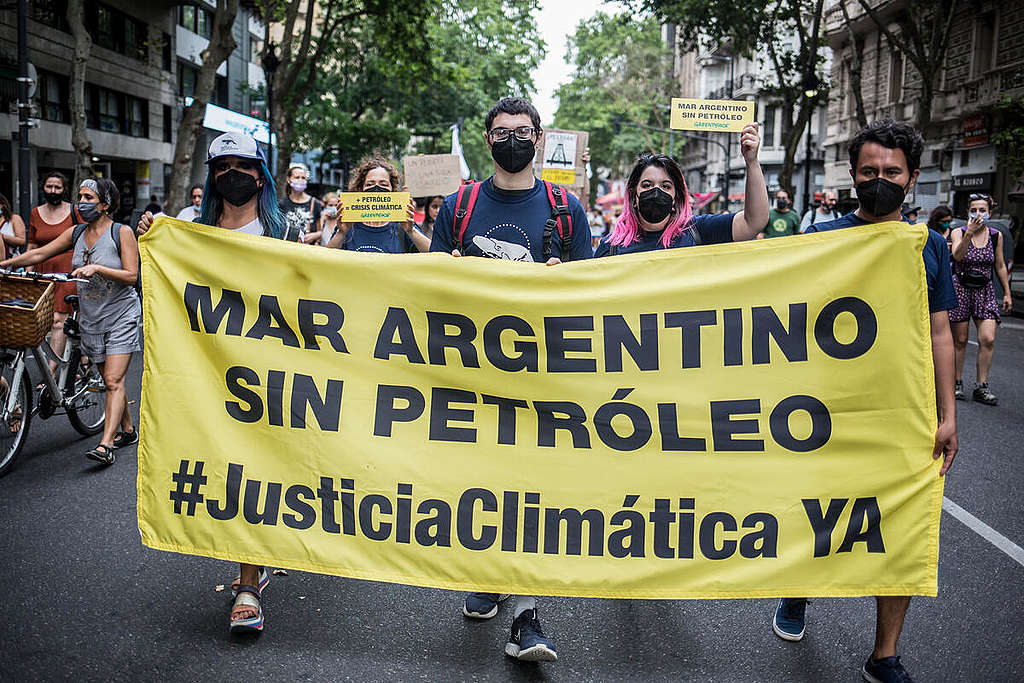
Are environmental demands ever successful?
We are convinced that through legal action the right to a stable climate can be recognized and the opening of new oil frontiers stopped. We’ve seen it happen before; in which justice ruled in favor of future generations, protecting them. On the other hand, in the Netherlands a lawsuit was filed to demand that emissions go down and, through a ruling, Shell was limited to emissions in its current business.
Greenpeace has also supported demands in other parts of the world:
In 2020 Greenpeace Germany, Germany’s Friends of the Earth (BUND) and other NGOs supported a group of young German climate activists who filed a legal appeal against Germany’s Federal Climate Protection Law for being insufficient to curb climate change, protect future generations and not being aligned with the German Constitution. In an unprecedented decision, the German Federal Constitutional Court made it illegal for the German government to fail to present a clear carbon reduction path from 2030 to zero carbon.
In May 2019 Greenpeace France, Notre Affaire à Tous, Fondation pour la Nature et l’Homme and Oxfam France filed an appeal against the French State before the Administrative Court of Paris for not acting on climate change. In February 2021, in a landmark decision, the Court found that France had failed to meet its own climate targets, causing damage.
On 11 November 2020, in Brazil, a coalition of NGOs and foundations filed a lawsuit against the Brazilian federal government for violating fundamental constitutional rights by not applying the National Deforestation Policy and allowing significant deforestation of the Amazon rainforest, thus contributing to climate change. It was the second climate lawsuit against the deforestation of the Amazon (the first was filed by De Justicia, in Colombia) that questions the climate degradation encouraged by the Brazilian government.
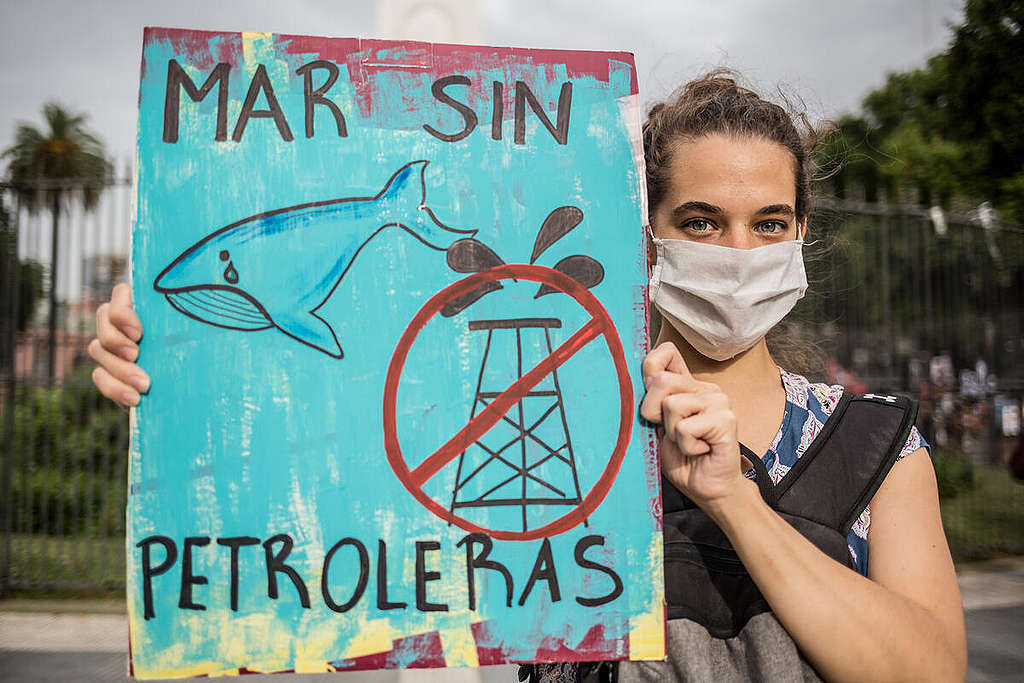
Collective actions are sometimes the only means that allows people to remedy injustices and are necessary in enabling individuals to take on multinational companies or institutions. Because of collective action, we believe in a movement that will stop the licenses that were granted for exploitation in the Argentine Sea.
Laura Colombo is the Digital Engagement Coordinator with Greenpeace Argentina.



